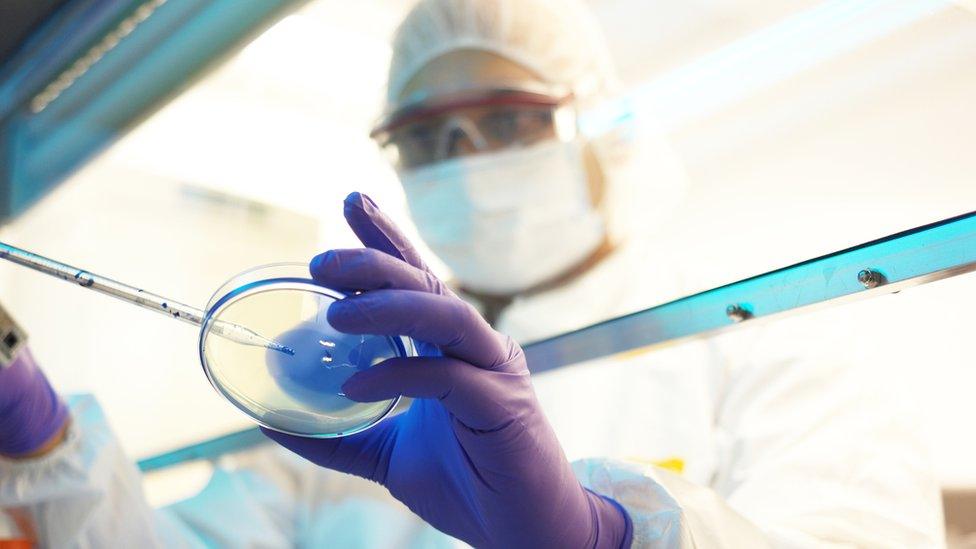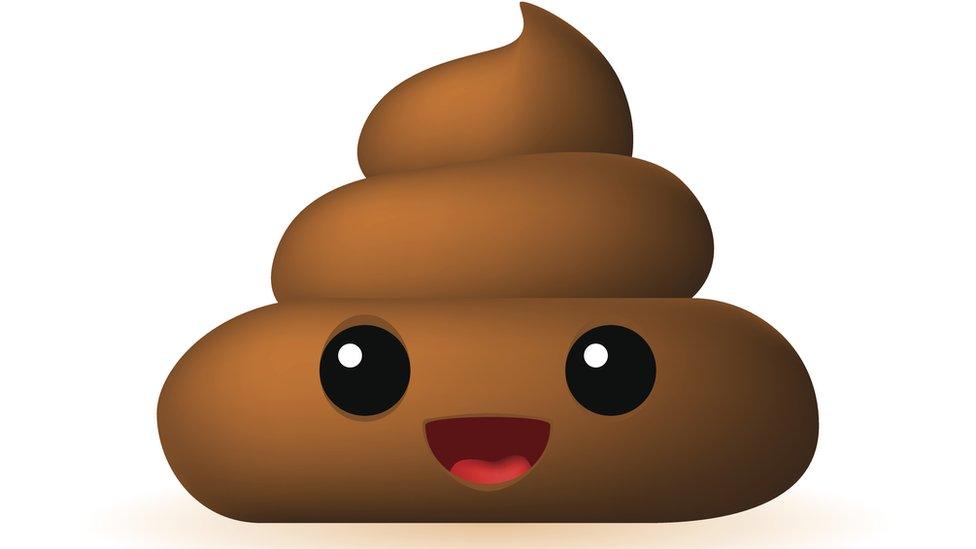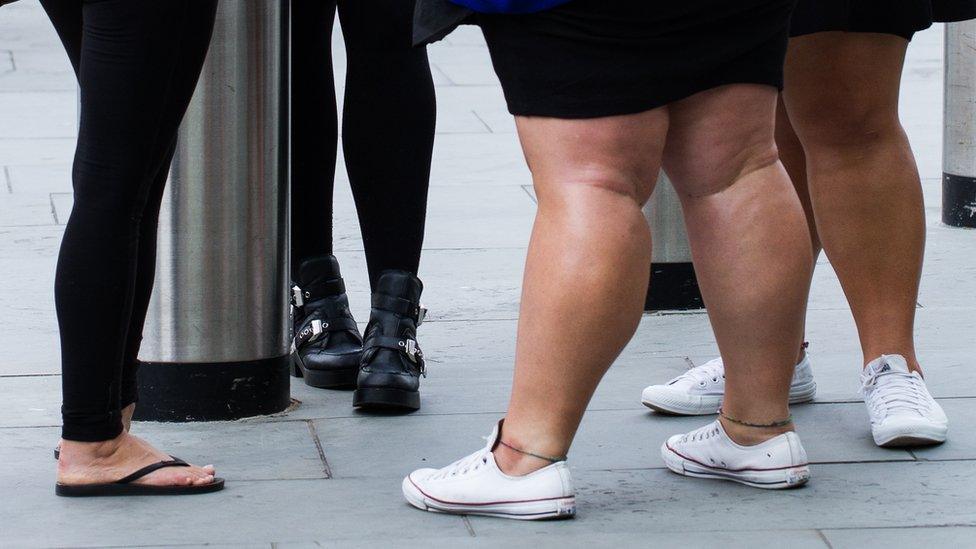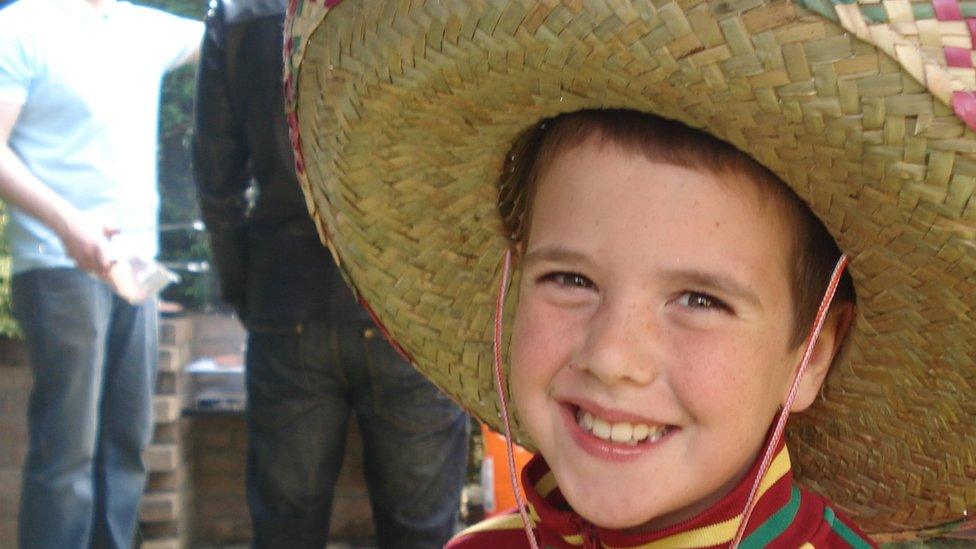Diabetes and obesity: How healthy poo could help
- Published

It is hoped the trial will lead to some people being able to stop taking diabetes medication
Researchers are hoping to develop a new treatment for Type 2 diabetes using healthy people's poo.
The trial in Swansea will see microscopic organisms from healthy volunteer's faeces transplanted into the bowels of obese people with Type 2 diabetes.
Experts behind the research believe it could lead to some people being able to stop taking diabetes medication.
They are currently recruiting 60 participants to take part in the study.
"There's a real yuck factor to this," said Prof Dean Harris, who is part of a team of experts from Singleton Hospital and Morriston Hospital in Swansea and Swansea University, which is conducting the research.
"But I emphasise that the bacteria we are transplanting is highly processed and filtered and it's almost unrecognisable compared to the origins that it comes from."

The team of Prof Dean Harris (left), Dr Andy Cunningham (centre) and Prof Jeffery Stephens (right) believe the trial could be "a real game-changer"
The treatment works by taking organisms such as bacteria and viruses from the guts of healthy people and transplanting them into people suffering from obesity and diabetes via a nasal tube.
A similar study conducted in the Netherlands in 2015 found changing the composition of organisms in people's bowels led to an improvement in diabetes control, as unhealthy guts over-extract calories from people's diets.
Prof Harris said the team had seen "great results" from initial research.
"It may even be possible that people who have just been started on diabetic medication can come off their tablets," he added.
Professor Jeffrey Stephens, a consultant in diabetes at Morriston hospital, said: "Given the global health problems of diabetes and obesity, this could be a real game-changer."
- Published24 January 2019

- Published18 August 2018

- Published13 July 2018
